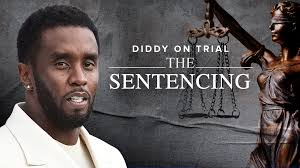Music mogul Sean “Diddy” Combs has been sentenced to more than four years in federal prison following his conviction on prostitution-related charges, bringing an emotional conclusion to a case that has drawn intense public attention. The ruling was delivered on Friday by U.S. District Judge Arun Subramanian, who imposed a 50-month sentence after a tense daylong hearing in New York. Prosecutors had argued for a maximum term of 11 years, describing Combs as unrepentant and manipulative, while defense lawyers pleaded for just 14 months, which would have meant time served, given that the 55-year-old has already spent over a year behind bars in Brooklyn.
Before the sentence was handed down, Combs addressed the court, apologizing for his actions and making a direct appeal for leniency. “I am truly sorry,” he said, his voice breaking at moments. “I ask your honor for mercy. I beg your honor for mercy.” The judge weighed those remarks alongside powerful testimony and victim statements that painted a harrowing picture of years of abuse.
Although a jury had acquitted Combs in July of the more severe charges of sex trafficking and racketeering, he was found guilty of transporting individuals across state lines for prostitution. Among those who spoke against him was Casandra Ventura, better known as Cassie, his former girlfriend and a central figure in the allegations. In a letter to the court, Ventura detailed years of physical, emotional, and sexual abuse, including disturbing accounts of being forced into “freak offs” — marathon sexual encounters with hired men, often orchestrated and filmed by Combs himself. She recalled a 2016 incident where she was beaten while trying to flee, footage of which was played in the courtroom. Ventura said the trauma continues to haunt her through nightmares and flashbacks, and she and her family have since relocated from New York out of fear of retaliation.
Prosecutor Christy Slavik emphasized that Combs had not demonstrated genuine accountability. “His remorse was qualified. It’s as though he thinks the law doesn’t apply to him,” she told the court, also citing his plans for public appearances in Miami as proof he expected to walk away with a lighter punishment. She described that as “the height of hubris.”
On the other side, defense attorney Nicole Westmoreland portrayed Combs as a flawed but inspiring figure, insisting that he had been an influential leader in the Black community and a supporter of social justice causes. She argued that his mistakes, while serious, did not merit what she described as “warehousing” him in prison. “He’s just a human being,” she said. “He’s made mistakes, but he is remorseful.”
The courtroom also heard emotional pleas from Combs’s six adult children, who described him as a father who has changed and deserves the chance to rebuild his life outside prison. Quincy Brown, his eldest, urged the court to see the man he knows today, while his daughter D’Lila pleaded, “Please, please give our family the chance to heal together. Not as headlines but as human beings.”
Despite the appeals, Judge Subramanian ultimately imposed a prison term of just over four years, falling well short of what prosecutors had sought but far more severe than the defense had hoped. The sentence marks a significant moment in a legal saga that has exposed disturbing details about one of the most prominent figures in hip-hop and entertainment.

